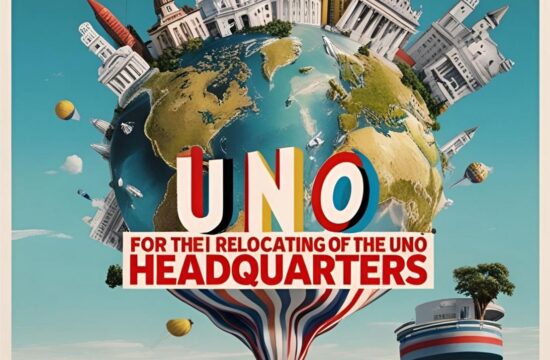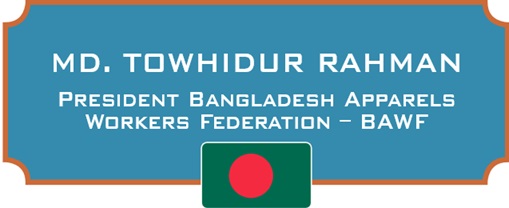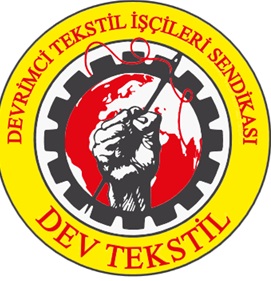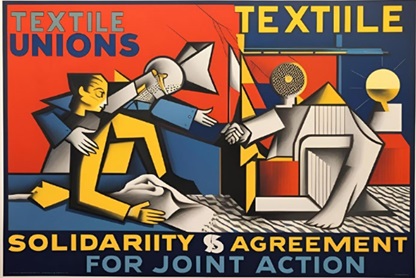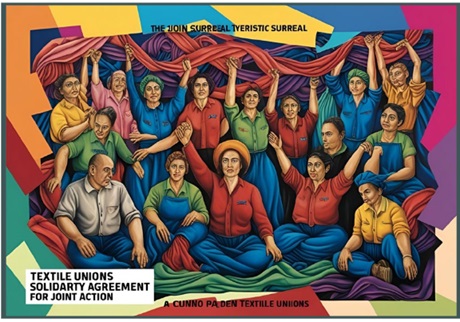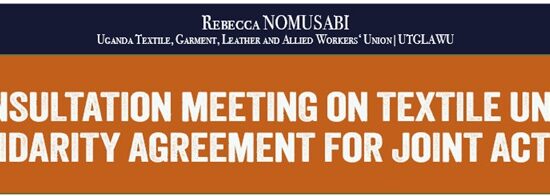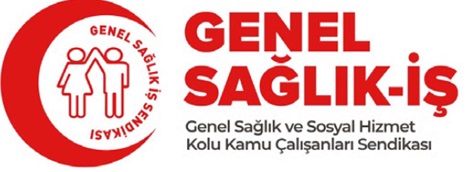Prof. Luca TATEO
University of Oslo – NORWAY
picture source: Created with AI
Scientific freedom is an arena of political struggle. This became even more evident since the raise of the new populist and supremacists’ movements. The systematic downplaying of scientific knowledge has been one of the key strategies of populist and alt-right movements worldwide (Sidky, 2023). Classical liberal values such as “freedom of speech”, “diversity”,
“intellectual freedom”, “religious free- dom”, etc. have been instrumentally bent to promote anti-scientism.
Also, neoliberal societies failed to guarantee this freedom generating alarm among scholars (Basilio, 2025; Witze, 2025) as market and competition in themselves are not guarantees
of quality and freedom of knowledge in science (Ferreira, 2022). On the contrary, academic institutions tend to be prone to political or economic power (Ball, 2025; Hegeman, 2024).
Moreover, the broad support and acceptance of market logic by scientists led to several consequences, such as the overlapping of the meaning of science with technological development, the neopositivist idea of science as control, and the idea that competition is the driving force of knowledge production. Yet, knowledge is a collective enterprise. Science is the fruit of the contribution of many people – sometimes driven by narcissism of course – and of a never-ending dialogue between different perspectives (Silva-Filho, 2024)
It is often repeated that science is not democratic, in the sense that consensus is not the basis for the under- standing of the world. This argument has been targeted by anti-scientism as well as decolonizing movement for completely opposite reasons. While anti-scientism claimed democratization as the freedom of people to believe what they want or fits their value system (e.g. alternative facts), decol- onizing critique has to do with the exclusion of some social groups from the process of production, sharing, and validation of knowledge (Dutta et al., 2021).
Higher education institutions are particularly relevant as they are both scientific and educational agents. Universities are one of the places where two important rights – academic freedom and intellectual freedom – meet and should feed into each other. The right to produce knowledge and the right to seek knowledge without restrictions are two sides of the same coin (Magi & Garnar, 2021). Moreover, universities are agents of social change, and they have the mission to provide knowledge for the benefit of the community.
Scholars – as both researchers and educators – must thus claim the right to resist the pressure from both sides: the market mechanism control and the populist ideological control. It does not mean that scholars should not be accountable to society either. So, it is time to imagine a new way of interpreting scholarship in society.
So far, the response of the academic community has been that of claiming her superiority and suggesting “more education” for the people. The discourse sounded like: if ever they knew what we know, they would understand. Exactly such an elitist approach has been easily targeted by populist rhetoric, reinforcing anti-intellectualism and “us” versus “them” opposition.
My first reflection is that the first possible way is to disconnect science and education from market rules. The second important step is to commit to higher values that can counter the populist instrumental denial and misinterpretation of science. I have been thinking about a first symbolic act that I want to share to begin a public discussion.
I have imagined a scholar’s oath: an ethically binding commitment for anyone who wants to do research and teaching, modeled on the Hippocratic Oath (Sioutis et al., 2021)
Hippocratic Oath is not an act of submission or adhesion to an institution or a faith. It is rather an ethic commitment to higher values, binding the person beyond and against any particular affiliation. Committing oneself in such a way is, on the contrary, an act of great intellectual freedom.
I drafted a text of the scholar’s oath:
“I swear to fulfill, to the best of my ability and judgment, this covenant:
I will pursue public, open, and free knowledge for the benefit of all living beings and the planetary ecosystem.
I will never contribute to any activity that produces oppression, violence, injustice, silencing or discrimination. I will never collaborate to the development any military or polluting technology.
My research will always be carried out “with” and not “on” humans and non-humans. Greed, ideology, purely personal benefits, or censorship will not silence or lead my pursue of knowledge.
I will remember that there is art to science, and that warmth, sympathy, and understanding may outweigh the technical instruments.
I will not be ashamed to say „I know not“, nor will I fail to seek the skills of another. I will commit to educate and enable those who will come after me to pursue their knowledge endeavor according to the same principles.
I will remember that I remain a member of society and planet’s inhabitant, with special obligations to all present and future fellow human beings and living beings, whether healthy or sick.
If I do not violate this oath, may I enjoy life and art, respected in life and remembered with affection thereafter. May I always act so as to preserve the finest traditions of my calling and may I long experience the joy of pursuing knowledge.”
I envisioned every future researcher and teacher committing to this oath at the end of the studies. What would be the consequences of such a commitment on the practice of science and higher education? How the different disciplines (humanities, life sciences, natural sciences, technology) would be affected? How would the society look at such a kind of scholar-ship?
I imagine that someone would say that such a commitment would be an ideological constraint over knowledge production. Others would say that it can slow down technological development. Another counterargument could be that it is not respectful of cultural diversity as it introduces universal principles. All the above ssues must of course be object of discussion. However, my point is that scholars must have the ethical compass to navigate the world and to understand the consequences of their actions.
Doing research and teaching imply the establishment of a systemic relationship. One of the main critical issues in science is the subject-object dualism in the epistemic relationship. Instead of a dualism, I suggest that scholarship implies the establishment of a whole/parts relationship (Tateo, 2020). When the researcher enters in contact with the object of interest (a person, a natural phenomenon, a concept), a new whole is produced. What are usually called subject and object of knowledge become a system of interdependencies. The idea that the scholar can temporarily interact with an object and return to his previous condition after that interaction is just a fiction. When one is pursuing knowledge, as instructor or as learner, an interdependency is established that necessarily changes both subjects. This is a wonderful consequence of scholarship but also a great ethical responsibility. If one applies this prin-
ciple to both human and more-than- human epistemic objects, one can see how the epistemological perspectives of North-Atlantic and other indigenous cultures begin to get closer. This
is also kin to the growing idea of the ethics of care (Naylor, 2023).
References
Ball, P. (2025). Scientific institutions have a long history of anticipatory obedience. Chemistry World.
Basilio, H (2025). “We are a target”: scientific society under pressure after Trump DEI crackdown. Nature. doi: https://doi.org/10.1038/d41586-025-00372-0
Mohan Dutta, Srividya Ramasubramanian,
Mereana Barrett, Christine Elers, Devina
Sarwatay, Preeti Raghunath, Satveer Kaur,
Debalina Dutta, Pooja Jayan, Mahbubur Rah-
man, Edwin Tallam, Sudeshna Roy, Ashwini
Falnikar, Gayle Moana Johnson, Indranil
Mandal, Uttaran Dutta, Iccha Basnyat, Che-
ryll Soriano, Vinod Pavarala, T T Sreekumar,
Shiv Ganesh, Asha Rathina Pandi, Dazzelyn
Zapata (2012). Decolonizing Open Science:
Southern Interventions, Journal of Commu-
nication, Volume 71, Issue 5, Pages 803–826,
https://doi.org/10.1093/joc/jqab027
Ferreira, A. (2022). Living on the Edge: Con-
tinuous Precarity Undermines Academic
Freedom but Not Researchers‘ Identity in Ne-
oliberal Academia. In Academic freedom and
precarity in the Global North (pp. 79-100).
London: Routledge.
Hegeman, S. (2024). Institutional Autono-
my and Anticipatory Obedience: Academic
Freedom in the University Culture Wars of
the 1960s and the Present. The Minnesota
Review, 2024(102), 145-163.
Magi, T., & Garnar, M. (Eds.). (2021). Intel-
lectual freedom manual. American Library
Association.
Naylor, L. (2023). A Feminist Ethic of Care in
the Neoliberal University. Society & Space.
Sidky, H. (2023). The war on science, anti-in-
tellectualism, and ‘alternative ways of know-
ing’in 21st-century America. Unreason: Best
of Skeptical Inquirer, 49.
Silva-Filho, W. J. (2024). The Epistemology of
Conversation: First Essays (Vol. 156). Spring-
er Nature.
Sioutis, S., Reppas, L., Bekos, A., Limneos, P.,
Saranteas, T., & Mavrogenis, A. F. (2021). The
Hippocratic oath: analysis and contempo-
rary meaning. Orthopedics, 44(5), 264-272.
Tateo, L. (2020). The Golem of psychology
and the ecosystemic epistemology. Integra-
tive Psychological and Behavioral Science,
54(3), 667-676.
Witze, A. (2025). NASA embraced diversity.
Trump’s DEI purge is hitting space scientists
hard. Nature. doi: https://doi.org/10.1038/
d41586-025-00480-x
Author info:
Luca Tateo – https://orcid.org/0000-0002-
3207-6312
University of Oslo and Federal
University of Bahia
I have no conflicts of interests to disclose
Correspondence concerning this article
should be addressed to Luca Tateo, Depart-
ment of Special Needs Education, University
of Oslo, Postboks 1140 Blindern 0318, Nor-
way. Email: luca.tateo@isp.uio.no
io:
Luca Tateo is professor of Theory, Episte-
mology and Methodology of Qualitative Re-
search at the University of Oslo, Norway and
coordinator of the International Research
Master in Special Needs Education. He is
co-editor in chief of the Journal “Human Are-
nas. An Interdisciplinary Journal of Psychol-
ogy, Culture, and Meaning”, Springer, and ed-
itor in Chief of the book series “Innovations
in Qualitative Research”. He is a member of
the board of the Network of Excellence “Ideas
for the Basic Education of the Future” on In-
novative Learning, Teaching Environments
and Practices, based at East China Normal
University in Shanghai. He is chair of the
International Environmental Justice Com-
mittee of the Division 52 – Global Psychology
of the American Psychological Association.
His current research interests cover the
general areas of ecosystemic approach to
psychology; environmental and epistemic
injustice; cultural psychology of education;
the aesthetic dimension of psychic life; the
epistemology, methodology and history of
psychological science. His forthcoming edi-
torial projects are: 1) the Routledge textbook
Fundamentals of Cultural Psychology; 2) the
Cambridge Handbook of Psychology and the
Planet: Environment, Climate Sustainability
and Nature; and 3) the Elgar Encyclopedia of
Cultural Psychology


